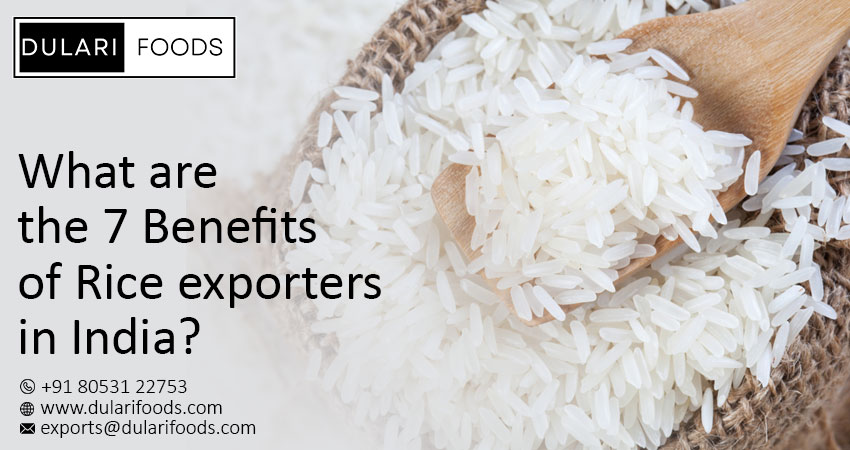Rice, also called the staple food of billions of people and hold a special position in global trade. India, the country being one of the largest producer of rice, has a unique advantage in providing the best basmati rice to every corner of the globe. There are not only economic benefits but also social and environmental advantages.
Through this blog post, let’s get to know about 7 major key advantages that make exporting rice from India a profitable business for both the country and stakeholders.
Let’s get into it!
Rice-Globally loved Cuisine
Rice is often known as the world’s most consumed staple food above the geographical boundaries and cultural differences to emerge as a universally loved cuisine. From the fragrant basmati rice of India to other global dishes.
Being versatile in the cuisine, rice is the one and only which can relax your taste buds. Beyond the deliciousness, it is the main ingredient in many cuisines across Asia.
India- The largest Exporter of Rice
The Country India holds the supreme title of being the largest exporter of rice for many compelling reasons.
- Large Productivity: The country is blessed with fertile lands and the right climate for cultivation, India regularly reaps a good amount of basmati rice to meet domestic needs and also to deliver it overseas. Across this vast nation lie expansive agricultural regions ideal for growing rice in abundance.
- Diversification: India produces a huge range of varieties which include the best Basmati Rice with its strong nuty aroma and slender grains are valued by many international markets. Exports of Basmati rice make a significant contribution to India’s total volume shipped abroad.
- Better Pricing: Competitive pricing in India plays an important role in increasing the global rice trade. Providing better value, Indian rice is often priced better and more attractive than other countries, drawing the attention of many buyers worldwide.
- Government Support: The Indian government provides better incentives to the farm sector, including rice producers and merchants. Schemes such as minimum price supports, input subsidies and export promotion schemes enhance cultivation, and overseas sales, fostering growth and competitiveness on the world stage.
- Infrastructure Development: India has invested heavily in infrastructural development, notably modern rice milling and processing facilities utilizing advanced technologies. Top-quality output meets international norms for trade. Meanwhile, efficient transport networks and port facilities streamline exports, ensuring timely deliveries to overseas markets.
- Quality Assurance: Indian rice exporters prioritize quality assurance to protect their good name and satisfy discerning international clients. Rigorous quality controls are implemented throughout production, processing, and packaging to guarantee consistency and compliance with worldwide standards. Certifications like those from FSSAI further validate Indian rice’s credibility globally.
These are some of the points that show the country’s importance in exporting rice to many other countries. But, most of the exporters also need to face some common challenges while exporting the finest grains from one country to another.
So, down below are some of the points, let’s take a look:
What are the Challenges in Rice Exports
Many rice exporters face many challenges in the global market. Competition from many major exporting countries such as Thailand, Vietnam, and Pakistan is way too intense, with the countries that are providing competitive price that makes it difficult to many exporters to face difficulties.
Price increases due to factors such as weather conditions and currency exchange rates add to the challenge, making it hard for exporters to manage their profit margins. Making sure the consistent quality standards and compliance with international regulations is crucial, but it can be challenging, especially for small-scale producers.
Less infrastructure, including storage and transportation facilities, hampers the efficiency of export operations, leading to delays and increased costs. Additionally, trade barriers such as import duties and quotas imposed by importing countries hinder market access for rice exporters.
CONCLUSION
While concluding the above discussion, we get to know about some of the major benefits exporters experience while exporting the finest grains of basmati rice from India. Like Dulari Foods one of the top basmati rice exporters in India, providing the best quality products and services around the globe.


